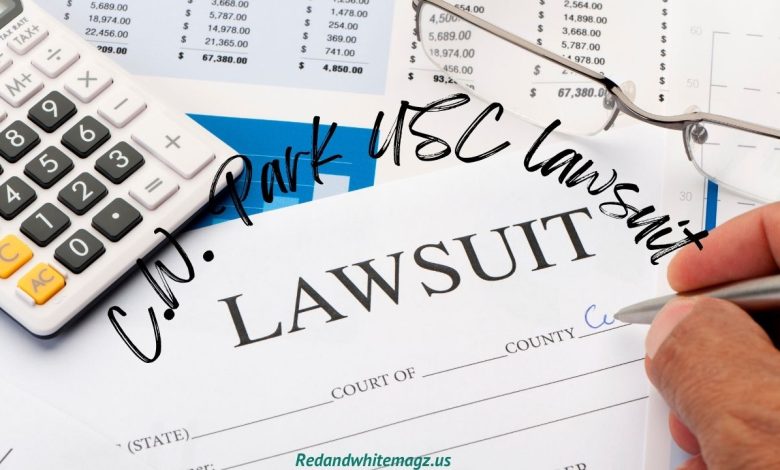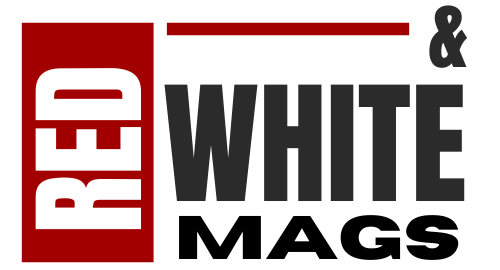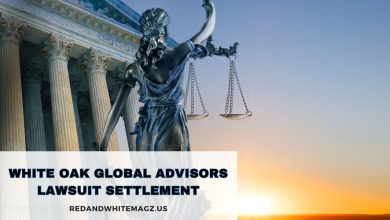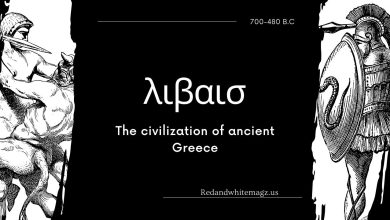Fairness on Trial: The C.W. Park USC Lawsuit Unveiled

The C.W. Park USC lawsuit involves legal action against the University of Southern California. It’s a significant case alleging misconduct.
Park, a former dean, claims wrongful termination. Allegations include discrimination and retaliation. The lawsuit highlights issues of academic integrity and institutional accountability. USC faces scrutiny over its handling of personnel matters.
Park’s case raises questions about fairness and transparency within the university. The outcome could impact policies and practices across academic institutions.
Legal battles like these underscore the importance of upholding ethical standards in higher education. It’s a complex puzzle with implications for both individuals and institutions.
What Is The C.W. Park Usc Lawsuit?
The C.W. Park USC lawsuit involves legal action against the University of Southern California. Park, a former dean, filed the lawsuit alleging wrongful termination, discrimination, and retaliation.
The case highlights issues of academic integrity and accountability within the university. USC faces scrutiny over its handling of personnel matters, raising questions about fairness and transparency. The outcome could impact policies and practices across academic institutions.
The lawsuit underscores the importance of upholding ethical standards in higher education. It’s a complex legal battle with significant implications for both individuals and institutions involved.
The lawsuit reflects broader challenges within academia regarding fairness and accountability. USC’s response to the allegations will shape public perception and potentially influence future actions.
As the case unfolds, it draws attention to the need for clear policies and procedures to address such disputes effectively. The outcome of the lawsuit will be closely watched by stakeholders within and beyond the university community.
Who Is C.W. Park And What Role Did They Have At Usc?
C.W. Park, a former dean, played a prominent role at the University of Southern California. Park held leadership responsibilities within the university, overseeing academic programs and faculty.
As a dean, Park was responsible for guiding the strategic direction of their department. They were involved in decision-making processes related to curriculum development and student affairs.
Park’s role also involved liaising with other university departments and stakeholders. They contributed to the overall academic environment and reputation of USC. Through their leadership, Park aimed to foster a supportive and inclusive community for students and faculty alike.
Park’s tenure as dean was marked by initiatives aimed at enhancing educational quality and promoting diversity. Their contributions to USC left a lasting impact on the institution and its constituents.
Park’s leadership style emphasized collaboration and innovation in addressing academic challenges. Their role as a dean reflected a commitment to excellence and integrity in higher education. Park’s legacy at USC continues to influence the university’s direction and values.
What Is Usc Accused Of In The Lawsuit?
In the c.w. park usc lawsuit, USC faces allegations of wrongful termination, discrimination, and retaliation. The accusations claim that USC acted unfairly towards C.W. Park, a former dean.
Park alleges mistreatment by the university, including biased treatment and unjust dismissal. The lawsuit asserts that USC failed to uphold proper procedures and violated Park’s rights. It suggests that USC’s actions were discriminatory and retaliatory in nature.
The accusations raise concerns about the university’s conduct towards its employees. Park contends that USC’s behavior harmed their professional reputation and caused emotional distress.
The lawsuit seeks accountability from USC for its alleged misconduct. It highlights broader issues of fairness and equity within the institution. USC’s handling of personnel matters comes under scrutiny due to these allegations.
The lawsuit underscores the importance of upholding ethical standards and protecting employees’ rights. It calls attention to the need for transparency and accountability in institutional practices.
The outcome of the lawsuit could have significant implications for USC’s reputation and policies. It’s a legal battle that could shape the future of how universities address employee grievances.
How Has Usc Responded To The Allegations?
USC has responded to the allegations by denying any wrongdoing. The university asserts that it followed proper procedures. USC maintains that its actions regarding c.w. park usc lawsuit Park were justified and lawful. It contends that Park’s termination was based on legitimate reasons.
USC argues that it has a commitment to fairness and equity in its employment practices. The university emphasizes its dedication to providing a supportive and inclusive work environment.
USC states that it takes all allegations seriously and conducts thorough investigations. It highlights its efforts to address concerns raised by Park through appropriate channels. USC asserts that it is cooperating fully with legal proceedings to resolve the matter.
The university expresses confidence in its position and the integrity of its actions. USC aims to uphold its reputation as a respected institution of higher learning. It seeks to demonstrate its commitment to ethical conduct and employee rights.
USC’s response underscores its stance on accountability and transparency in handling personnel matters. The university’s actions reflect its commitment to resolving disputes fairly and responsibly.
What Are The Potential Consequences Of The Lawsuit For Both Parties Involved?
The potential consequences of the C.W. Park USC Lawsuit for both parties involved could be significant. For c.w. park usc lawsuit, a favorable outcome could mean justice and vindication, restoring their reputation and professional standing.
It might lead to financial compensation for damages incurred and serve as a precedent for addressing similar grievances. However, an unfavorable outcome could have lasting implications, affecting Park’s career prospects and personal well-being.
It could validate USC’s actions and undermine Park’s credibility. For USC, a favorable outcome would validate its procedures and defend its reputation as an institution committed to fairness and integrity.
It could prevent further legal and reputational damage, reinforcing trust within the university community. Conversely, an unfavorable outcome could tarnish USC’s image and lead to financial repercussions. It might necessitate policy changes and damage control efforts to rebuild trust and address systemic issues.
Overall, the c.w. park usc lawsuit has the potential to reshape perceptions of both parties and influence practices within the academic community.
The stakes are high, and the consequences extend beyond the courtroom, impacting individuals and institutions alike.
What Steps Has Usc Taken To Address Concerns Raised By The Lawsuit?
- USC has initiated internal investigations into the allegations raised by the lawsuit.
- The university has appointed a dedicated team to handle the legal proceedings and address grievances.
- USC has implemented measures to ensure transparency and accountability in its employment practices.
- The university has revised its policies and procedures to prevent similar issues from arising in the future.
- USC has engaged in dialogue with stakeholders to understand their concerns and perspectives.
- The university has provided resources and support for employees to raise grievances in a safe environment.
- USC has committed to cooperating fully with legal authorities and conducting fair and impartial investigations.
- The university has emphasized its commitment to upholding ethical standards and promoting a respectful workplace culture.
- USC has taken proactive steps to communicate with the public and the university community about its actions and initiatives.
- The university continues to monitor developments related to the lawsuit and remains open to feedback and suggestions for improvement.
How Might The Outcome Of The Lawsuit Impact Other Academic Institutions?
The outcome of the c.w. park usc lawsuit could have far-reaching implications for other academic institutions. If C.W. Park prevails, it might set a precedent for addressing similar grievances, prompting other institutions to reevaluate their employment practices.
A favorable outcome could lead to increased scrutiny of how universities handle personnel matters, encouraging them to prioritize fairness and transparency.
Conversely, if USC wins, it might embolden other institutions to maintain their current practices, potentially perpetuating issues of discrimination and retaliation.
Regardless of the outcome, the lawsuit sheds light on broader challenges within academia, prompting discussions about accountability and ethical conduct.
Other institutions may take cues from USC’s response to the lawsuit, adjusting their policies and procedures accordingly. The case serves as a reminder of the importance of upholding ethical standards in higher education and may prompt institutions to proactively address any shortcomings in their practices.
Ultimately, the outcome of the lawsuit could shape the landscape of academic governance and influence how institutions navigate personnel disputes in the future.
What Are The Key Legal Arguments Presented By Both Sides In The Case?
In the c.w. park usc lawsuit, both sides present key legal arguments to support their positions. C.W. Park argues that USC’s actions constituted wrongful termination, discrimination, and retaliation. Park asserts that they were unfairly treated and that USC violated their rights as an employee.
The legal team supporting Park emphasizes evidence of biased treatment and procedural irregularities. They argue that USC failed to follow proper protocols in handling Park’s dismissal.
On the other hand, USC contends that it acted within its rights and followed established procedures in terminating Park. The university argues that Park’s dismissal was based on legitimate reasons unrelated to discrimination or retaliation.
USC’s legal team presents evidence to support its position, including documentation of performance issues or policy violations by Park.
They maintain that USC’s actions were lawful and necessary to maintain a productive and inclusive work environment.
Overall in c.w. park usc lawsuit, both sides present their interpretations of the events leading to Park’s termination, relying on legal precedents and evidence to support their respective claims.
Conclusion- C.W. Park USC Lawsuit
In conclusion, the C.W. Park USC lawsuit underscores the importance of fairness and accountability within academic institutions. The outcome of this legal battle will have significant implications for both individuals and universities across the country.
It highlights the need for transparent and equitable practices in handling personnel matters. Regardless of the verdict, the case serves as a reminder of the complexities and challenges inherent in higher education.
Moving forward, it is essential for institutions to prioritize ethical conduct and strive to create inclusive environments where all members feel valued and respected.
The resolution of this lawsuit will shape future policies and practices within academia, guiding institutions towards greater integrity and fairness.





